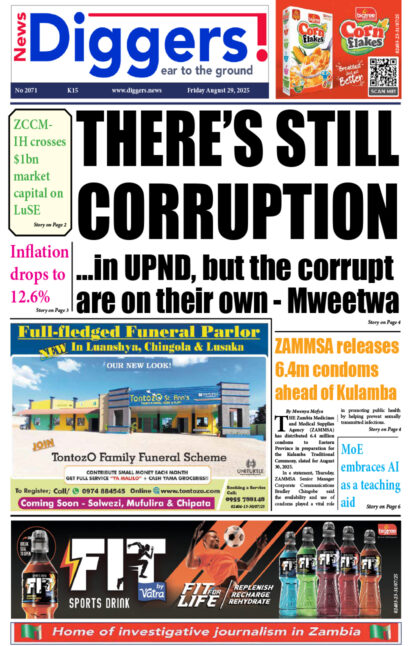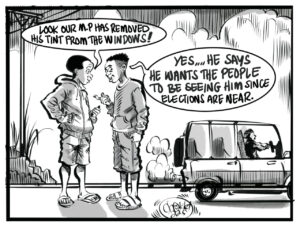Civil Society Organisations (CSOs) have observed that lack of inclusive participation in the planning process of the National Budget has led to slowed development in the country.
At a Civil Society for Poverty Reduction (CSPR) organised workshop yesterday, Consumer Unity and Trust Society (CUTS) International Zambia Coordinator Chenai Mukumba observed that many Zambian citizens had no idea what the National budget was.
“The lack of inclusive participation in the budget making process in this country is what has led to most people especially in rural areas to start thinking that they have no say in the decisions made by the government. Some of these people lack the knowledge of how and where government gets the money to fund all its departments on an annual basis without realising that the money actually comes from the tax that they pay through purchasing items, paying for roads and many other taxes. That is why they even think government is doing them a favour when a road is constructed in their area or whatever development takes place where they live. But that is not the case, because 45 per cent of the money that government spends comes from its citizens through taxation,” Mukumba explained.
“The Zambian government needs to account for all the money it spends because almost half of it comes from revenue collections and revenue is an important tool for the fiscal policy of the government and it is the opposite factor of government spending. Revenues earned by government are received from sources such as taxes levied on the incomes and wealth accumulation of individuals and corporations and the goods and services produced in a country as well as exports and imports. Government also has its own corporations where it gets the monies from to develop the country by fixing roads for citizens, building homes for civil servants and also constructing facilities such as schools, hospitals and also to pay its people for the services that they provide. So it is important that everyone is involved in the budgeting process in one way or the other.”
Mukumba also said that government was poor with the implantation of its plans.
“We seem to be so good as a country in planning but very poor at implementing our plans. Just look at how many National Development Plans (NDPs) we have come up with over the years and nothing is being done to change anything. How are we going to achieve our vision of becoming a middle income country by the 2030 if we can’t even involve key stake holders such as CSOs in the decision making process? If we don’t involve the Church and the general citizenry to get views and opinions of people before making a final decision? If we continue on this path then we might as well continue spending all the country’s resources and realise nothing in the end for our citizens. Good planning is very important for the development of any country,” he said.
Mukumba called on the media to use its various communication platforms to engage the public on the importance of their participation in the budget making process.
“I have discovered from my assessments that many people do not know what a budget is and they actually don’t care about whether or not they know what is contained in the national budget for a given year. I am actually not surprised that they don’t know anything at all about the budget because we have not decentralized the planning process of the national budget. Everything to do with decision making in this country takes place here in Lusaka by politicians and stakeholders such as Civil Society organisations. So the best way to help our people is by actually by using the media,” said Mukumba said
“If we continue leaving decisions to do with budgeting to politicians, then our problems as a country will never end because politicians follow their party manifestos when implementing policies, that is why they will bring you a road when you ask them for boreholes. It’s time everyone got involved in ensuring that the national budget covers the needs of every citizen because that budget affects all of us.”
























